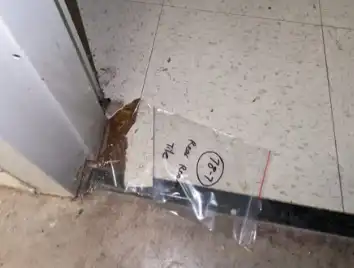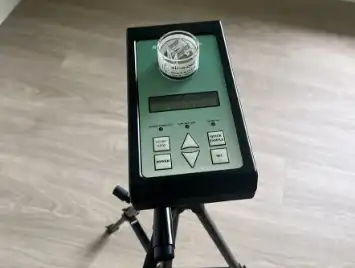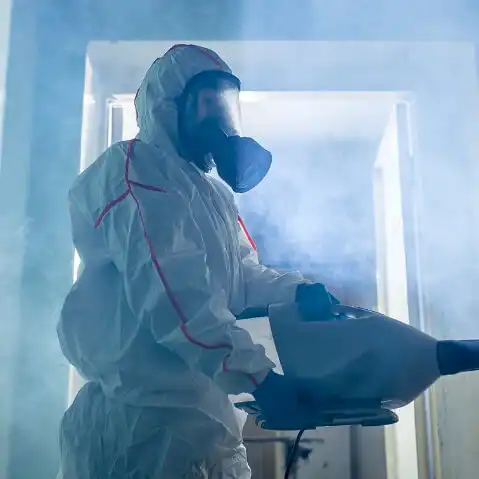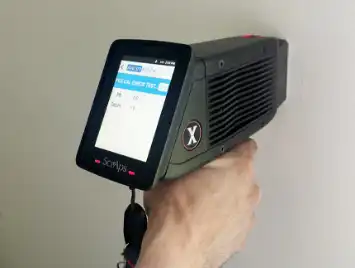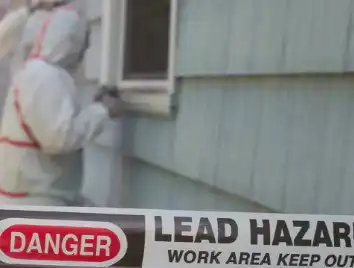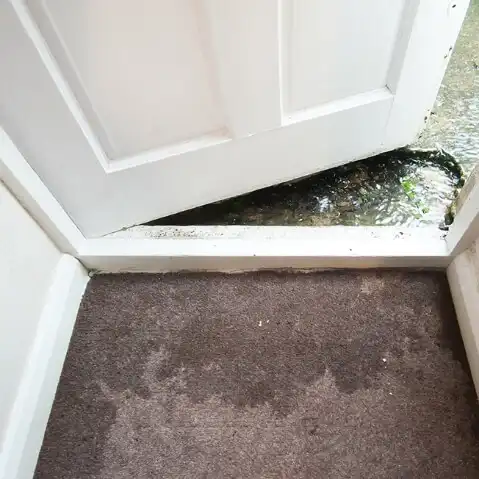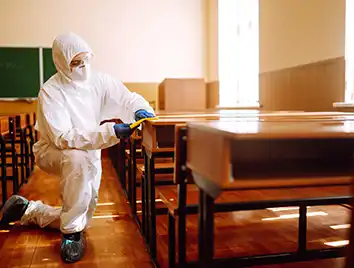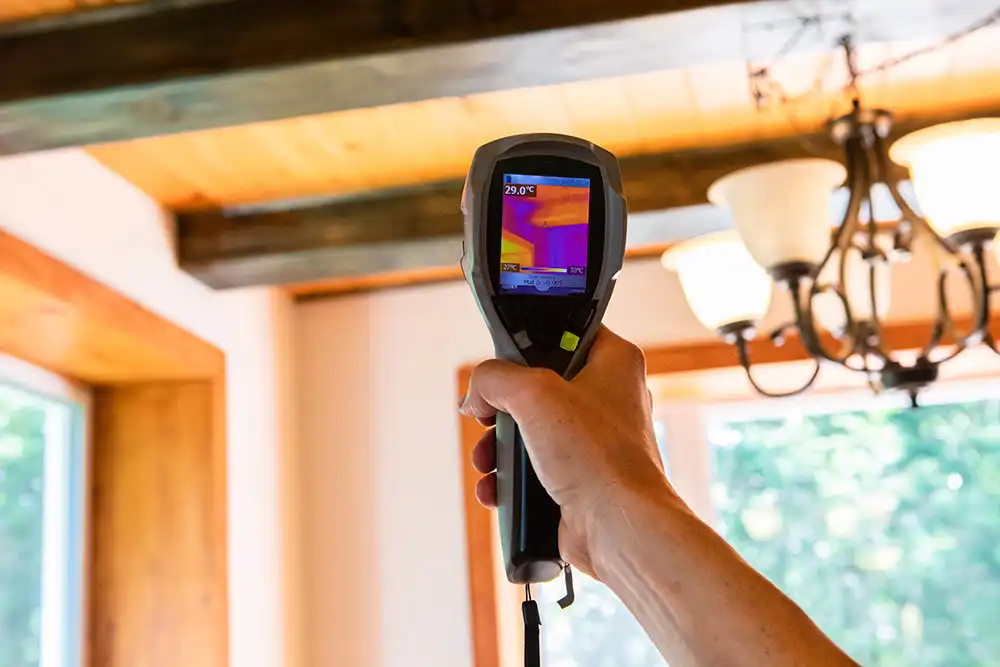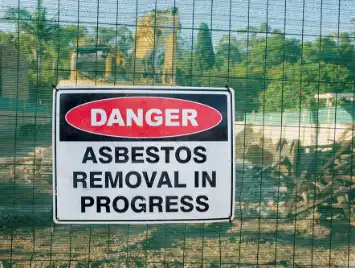
Mold Testing & Removal Lakewood NJ

Mold Inspection & Testing – Lakewood NJ
If you suspect mold may be a problem in your Lakewood Township home or business, the first step returning your building to a healthy state is to contact certified mold inspectors. Thorough mold inspections estimate the possibility of houses being infested with mold, and follow the entire process outlined below.
- Visual assessment:
Your IICRC-certified mold inspector will begin with a visual inspection. A homeowner attempt won’t be as knowledgeable on how to see and reach unnoticed spots, or properly identify a sign of past or future mold. The team will create a program to support remediation services. - Moisture mapping:
Mold is a symptom of an underlying problem. If in the inspection, mold is discovered, the presence and concentration of moisture in the building is detailed. Visible evidence and its extent in houses and properties are critical for any mold removal company to note and monitor. - Sample analysis:
Surface and air samples are taken with the necessary precautions. Testing mold should be done at a verified and specialized lab to know more about how dangerous the species may be for your health. Tests and scientific data are included in the cost of hiring a professional mold remediation company. - Report of findings:
After identifying the affected areas in the mold assessment, we detail the conditions of your mold issue in a report to help guide the mold remediation project. If you’re dealing with an insurance company, this mold inspection report can help provide records.
Mold Removal & Remediation – Lakewood NJ
After the inspection, the mold experts can begin with your mold removal. Mold remediation is the entire job of mold cleanup and restoration services, including physical cleanup of any mold present, to repair mold damage, and a complete plan to address the conditions that brought about mold growth. Complete mold remediation services ensure your mold removal services don’t need to be redone.
What does mold feed on?
Mold is a heterotrophic fungi, which means it cannot produce its own food. Unlike plants, mold is not photosynthetic, so it doesn’t feed on sunlight. Rather, it feeds on almost everything else, especially in high humidity or the absence of sunlight (for example, kitchens, bathroom, in the basement, attic, crawl space, or plumbing).
Mold particularly likes decaying plant matter and cellulose, which includes all paper and wood products. This could mean food, the compost bin, a wall, cardboard, drywall, furniture, books, and even the foundation of your building. Essentially, as mold spores are found everywhere in nature and can tolerate a range of temperatures, all you need for an outbreak is an excess of moisture.
What is a mold certification?
You should always choose a professional mold removal company that is qualified and knowledgeable. Certifications from recognized industry groups can help you understand who is a vetted, trained professional. We are certified by the Institute of Inspection Cleaning and Restoration Certification (IICRC), American Council for Accredited Certification (ACAC), US Environmental Protection Agency (EPA), and the New Jersey Dept of Community Affairs (DCA).
The AAA Guarantee
Mold remediation is not a home project that should be entrusted to a casual hobbyist. When you need professional mold removal, who wants to question the quality of the mold remediation services they’re getting? Have peace of mind with AAA Lead Professionals: we’re guaranteed to bring certified environmental cleanup expertise and the most dedicated customer service in all of Ocean County. We have a Super Service Award on Angi to prove it!
Whether for residential or commercial clients, we’re top-rated across all our service areas in NJ, NY, and Philadelphia. Never search for another restoration company again! We know mold is extremely stressful, and unlike other contractors, never take advantage of your stress. Read the reviews from real clients. Trust us to solve your headache – don’t hesitate to get a fair and free consultation today.
FAQ
Can a new house have a mold problem?
Yes, a newly built or purchased home can still have mold issues. While older buildings are more likely to have a history of mold, basically any organic material can become a host to mold, regardless of age. It can even grow on inorganic surfaces like steel, as long as there’s organic substances present, even including oil left from fingerprints. A better indicator of whether you should suspect mold is whether there are visible water marks or rippling to the paint and walls, condensation, or a musty smell.
How can I maintain my environment to avoid mold?
The specifics of your property in Lakewood NJ will affect what conditions will trigger mold. Generally, mold likes a relative humidity of 55-60% or greater. A prolonged RH of 70% or more will almost certainly lead to mold infestation.
Keep your home relatively dry and well-ventilated, ideally using an air filter. Have designated, regularly cleared areas for garbage. Maintaining routine cleaning, windows, walls, gutters, plumbing, and dealing with any leaks and spills immediately will avoid long-term issues from unnoticed damage. These also reduce the likelihood of pests and insects.
Can mold be a problem in schools or industrial buildings?
A mold outbreak can happen anywhere. Schools and large commercial buildings are common culprits for mold to happen due to the high amount of human traffic and therefore contaminants circulating, as well as the abundance of small corners and places that aren’t checked or cleaned everyday. Mold can spread through being touched or getting on clothes and shoes. If you notice yourself often feeling unwell in a particular space (especially breathing, fatigue, coughing, and headache), and it goes away when you leave the area, investigate whether mold exposure could be making you sick there.
About Lakewood NJ
Once known as Bergen Iron Works, the village was renamed Bricksburg after the death of Joseph W. Brick, for whom Brick Township is named. By the late 1800s, it’d become a resort destination for the country’s elite and others, including the John D. Rockefeller estate Golf House. In 1880, it was renamed to Lakewood and became an established Township in 1893.
Today, Lakewood New Jersey is a lively town of about 138,000 people. Having tripled its population in the last 30 years, it’s one of the most rapidly developing areas in the country. Its society and culture are strongly influenced by its prominent Orthodox Jewish community, who are more than half its residents. There are over 100 yeshivas in the 25-square-mile town, including Beth Medrash Govoha, the second largest yeshiva in the world.
Lakewood NJ Resources
- The Building Department has information on inspections and construction in Lakewood NJ.
- The Township site also offers Lakewood NJ health resources.
- See what the real estate market is like with Lakewood NJ real estate listings.
- Need legal advice? Find and filter results for Lakewood NJ lawyers.
If you’re planning a leisure day, check out top attractions in Lakewood, Lakewood NJ weather, and the Lakewood NJ library.
See Our Other Services
In New Jersey
Asbestos, Mold And Lead
Fire, Water And Other
Testimonials
